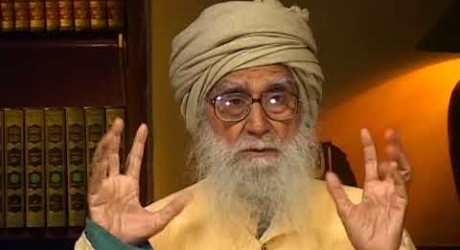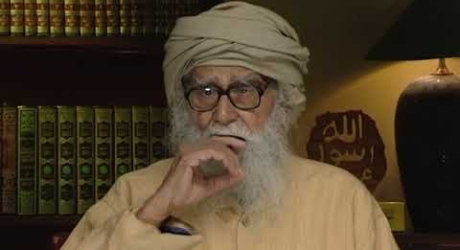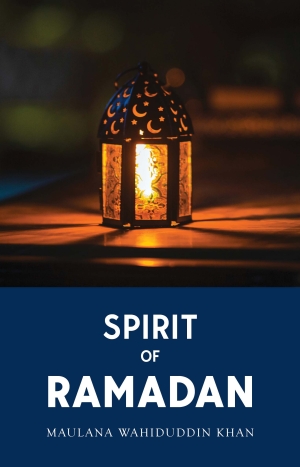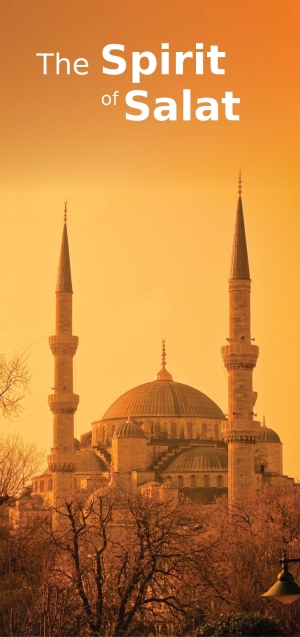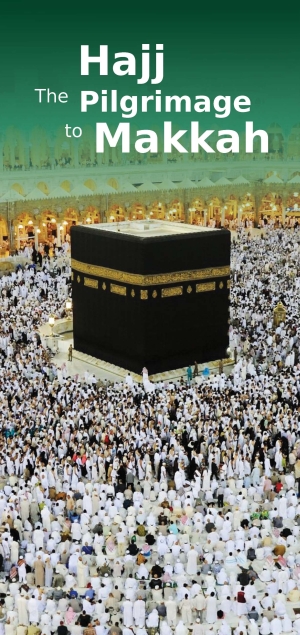Ibadat (worship) means those acts outlined in the Shariah so that the spiritual aspect of man is made to prevail over his material aspect. Such ways of worship are prescribed to bring man psychologically closer to God.
In Islam, four practices are essential and complementary aspects of ibadat (worship): namaz (prayer), sawm (fasting), hajj (the pilgrimage to Mecca) and zakat (alms-giving). These four forms of worship symbolise the nature of the extended worship required of human beings throughout their lives. Namaz (Salah), for instance, conditions human beings in modesty—a quality that gives a proper religious hue to all spheres of human existence.
Similarly, fasting inculcates patience, a virtue without which there can be no peace on earth. Zakat is no less necessary, a gesture of well-wishing for humanity. While affording spiritual benefit to the individual, Hajj aims to unite all of God’s servants under the banner of His religion. Each category of obligatory worship has a form and a spirit, just as the human being has a body and a soul—the one being inseparable from the other. The essence of each of these separate rites of Islamic worship is their spirit rather than their form.
Featured Articles
Featured Videos
FAQs
Prayer strengthens a believer’s resolve to remain a peaceful member of the society, and to harbour no ill-feelings towards anyone. Prayer in one respect is to surrender before God, attributing all kinds of greatness to Him alone. In yet another respect, prayer prepares the individual to lead a worthy life among fellow human-beings, adopting an attitude of modesty, sympathy and good-will in all his dealings. In short, prayer perfects a person’s relation with God as well as with other human beings. According to a verse, a believer is enjoined thus:
“Prostrate yourself and come closer to God.” (The Quran, 96:19)
The cadence of praying five times formally was prescribed so that congregational prayers could be undertaken. A believer otherwise must engage in prayer in an informal way throughout the day, whereby he remembers the blessings of God and shows gratefulness to his Creator. This has been alluded to in the Quran in the following words:
“When you have finished the prayer, remember God while standing, and sitting, and lying on your sides. When you feel secure, say your prayers in the prescribed form.” (4:103)
Source: The Seeker’s Guide
The spirit of worship or ibadat is acknowledgement. It is inherent in human nature to acknowledge the Benefactor. Our Creator is our biggest benefactor who brought into existence the entire universe, which is custom-made to human needs and has a life support system to ensure our sustenance. How can we then not acknowledge the greatest of all Benefactors? Man, as a creation, has his limitations; no human being is all-powerful. When a person seeks to do something, he often finds out that he has limitations. It is this helplessness which leads him to pray to and seek help from God.
Source: The Seeker’s Guide
Prayer is form of worship of God. Prayer has been enjoined on believers five times a day at appointed hours, as given in the Quran in these words:
“Believers are under the obligation to say their prayers at the appointed hours. (4:103)
These prayers are performed either individually at home or in congregation in mosques. A believer begins his prayer by uttering the words “God is Great”. These words acknowledge that all greatness belongs to God and that the worshipper will lead a life of modesty and humility. Each prayer is segmented into several rak’ahs, or units. In each rak’ah a person stands, bows and prostrates, reciting verses from the Quran and other prayers. These are the five obligatory prayers:
1. Early morning prayer (Fajr): Two rak’ahs between dawn and sunrise
2. Noon prayer (Zuhr): Four rak’ahs, between noon and mid-afternoon
3. Afternoon prayer (Asr): Four rak’ahs. The time for prayer starts when the length of any object’s shadow reaches a factor (usually 1 or 2) of the length of the object itself plus the length of that object’s shadow at noon. The time for the prayer ends at sunset.
4. Sunset prayer (Maghrib): Three rak’ahs between sunset and early evening
5. Evening prayer (Ishaa): Four rak’ahs from the disappearance of twilight until dawn
During the prayer, a believer refreshes his memory about God’s commandments regarding himself. Then he kneels and prostrates himself before God, in physical expression of the idea that the only course that befits him is to lead his life according to the creation plan of God. The prayer is concluded by turning the face first to the right side, then to the left, and uttering the words Assalamu-alaykum, which means, ‘May the peace and blessings of God be upon you!’ This is a demonstration that spiritually conditioned by prayer, the worshipper is now entering into the world with no other thoughts and feelings in his mind but those of mercy towards others and peace for all mankind.
Source: The Seeker’s Guide
Ibadat or worship is not simply the observation of a set of rituals. It is more a profound kind of religious experience. In fact, it is the physical and spiritual expression of the human personality on a higher plane of consciousness.
Addressing man, the Quran says, “Prostrate yourself in adoration and bring yourself closer (to God)” (96:19). The Prophet Muhammad, may peace be upon him, was once asked ‘What is the essence of ibadat? He replied: “The worship of God as though you are seeing Him. Or if you are not seeing Him, He is seeing you.”
There are two kinds of ibadat, or worship, in Islam, the first kind of ibadat have been prescribed at specified times—salat, sawm, zakat, hajj, (prayer, fasting, almsgiving, pilgrimage). These forms of devotion are called the pillars of Islam. Then there are unspecified forms of ibadat, which consists of dhikr and fikr (3:191), meaning to remember God with feelings of fear and love.
This second form of ibadat aims at mental activation of the human soul so that he may be enabled to see God’s signs in everything he comes.
Source: Al Risala January-February 2001


